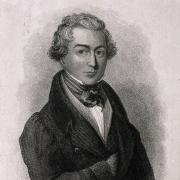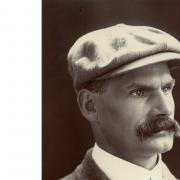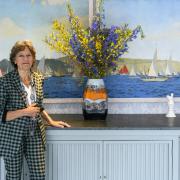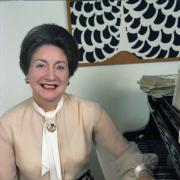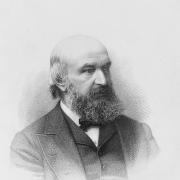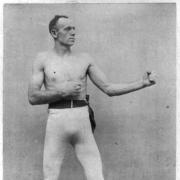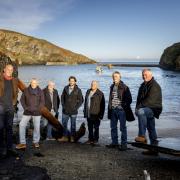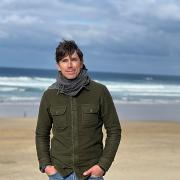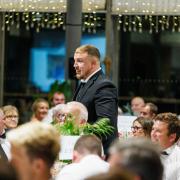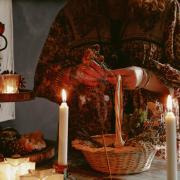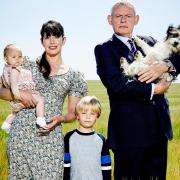He’s been beamed into our homes at teatime for more than 20 years – and now BBC Spotlight presenter Justin Leigh has hung up his microphone

It’s like losing one of the family. It is a sentiment that has surprised – but delighted – the former BBC Spotlight presenter Justin Leigh who left the corporation at the end of 2020 after more than 30 years including more than 20 years on Spotlight.
He was adamant that his leaving shouldn’t be a big deal – and that he shouldn’t become the story. “I just asked for 20 seconds at the end of the show on Friday,” he admits. Fortunately, the BBC had other ideas and he had a little more of a send-off befitting his 20-plus years on the programme. The viewers who had been welcoming the Cornwall native into their homes every night at 6.30 were distraught.
“I was surprised and moved,” he says of all the messages that he has since received from viewers.
Although he began his BBC career at Radio Cornwall 30-some years ago, it seems Justin’s urge to tell the news dates back much further than that. “I always wanted to be the first to tell people something. If we went to visit relatives, I always wanted to be the one to tell that relative all our news. I didn’t know what it really is. Just curiosity and an eagerness to share information that I’ve always had.”

His interest in broadcasting soon followed. “For as long as I could remember, I was fascinated by television and broadcasting. And so that was all I ever wanted to do.
During lockdown, for many of their viewers, Justin and fellow presenter Victoria Graham were the only friendly faces they saw. “There is an enormous loyalty to Spotlight from the audience. They give us a huge amount of licence to make mistakes and they still stick with us, even if we sometimes don’t get it right.”
But he will be remembered for the many times he did get it right – including an early outside broadcast in a storm-ravaged Boscastle almost 15 years ago.
“I had to go up there for four or five days in a row to cover the story as it unfolded,” he says. “And I was there one evening during the live broadcast. And there was a shop owner I was interviewing about the damage caused to her shop, and how much it was going to cost to repair. And she was she was very upset, as you might imagine, and wasn’t sure how she was going to get the shop up and running again. And there were a group of people watching the live broadcast, including a family, with a young child of 10 or 11 years old. And when we finish the interview and I introduced the next story, this little boy came over and gave the lady that I’d been interviewing his pocket money to help her with her shop. I remember being really moved by that; that’s always stood out for me.

“The privilege has been to be involved in people’s lives, whether it was a triumph, or tragedy, and I’ve been at the very highs of people’s career, triumphs and successes and I’ve been able to report some of those people like Mark Ormrod, the Royal Marine who lost so many of his limbs when he was on active service and has since come back and been the most amazing inspiration to people.”
And perhaps less well known was the time he trespassed into Buckingham Palace. “It was the Golden Jubilee for the Queen. And we went to Buckingham Palace where there was a live broadcast for all the local radio stations of a concert classical music concert from the grounds of the palace. And I was asked to go along and be one of the reporters for local radio that night. We only have access to the grounds. We saw the back doors of Buckingham Palace were open. And we walked in through the palace, across the quadrangle, and out to the front of the palace underneath the balcony. And we were staring out at the public behind the railings, and then walked back through the quadrangle and back out into the grounds of Buckingham Palace and how we never got arrested. I don’t know. I was terrified, though, because I was thinking any minute now somebody’s going to come and ask us what we’re doing that and then realise we’re not supposed to be there. But we got away with it.”
Justin numbers many Prime Minsters among his interviews – but one particular interview with David Cameron stands out. “He’d come down to talk about devolution of powers for Cornwall Council. On the same day, there’d been an announcement that MPs pay was increasing. And I’ve been asked by BBC News in London, to ask an additional question to the Prime Minister about MP’s pay because some of his MPs were planning to donate the pay rise to charity. And I asked him if he was going to do that. And he wasn’t very happy. He didn’t answer the question: he said he makes donations to charity regularly and what he does with his MP’s pay is his business.”
They say there are few things as nerve-wracking as live television – but for Justin it was less nerves, more avoiding the excesses of the lighter segments. “I guess I felt I was always on the side of the viewer and my role as the sort of person that the viewer most associated with the programme was to keep the viewers interests at heart.” This meant toning down some of the lighter elements, he says. “I would look at it from the viewers point of view and think, what do the viewers need to get out of this. Or what are they going to appreciate most? And what do I need to do to make sure that they get that information or they enjoy this item, without it being silly, or insulting to their intelligence.

“I was my biggest critic, I would come home and think oh, no, why didn’t I ask that? But in the heat of a live television interview with someone in your ear counting you out?”
The response to his departure has been humbling, he says. “I thought my departure would simply be noted, and maybe people thought I’d be on holiday for a while not noticed that I’ve actually gone.”
But he couldn’t have been more wrong. There was an avalanche of emails, letters and cards from viewers “I couldn’t get over that and how many people have said to me, this is like losing a member of our family and to be considered part of thousands of people’s families as they watched up and down the region, that has been amazing.
“I can’t say thank you enough for people for taking the trouble to write and get in touch and say such lovely things - it has been amazing.”
There has been no shortage of offers of projects. He looks set to work with the Cornwall Channel and will be passing on his skills with some teaching at Plymouth Marjon University. “Funnily enough, they’ve got purpose-built radio and TV studios on the site of the BBC, right next door. I’ve still got my pass for the building, but I don’t think it’ll work anymore.”





